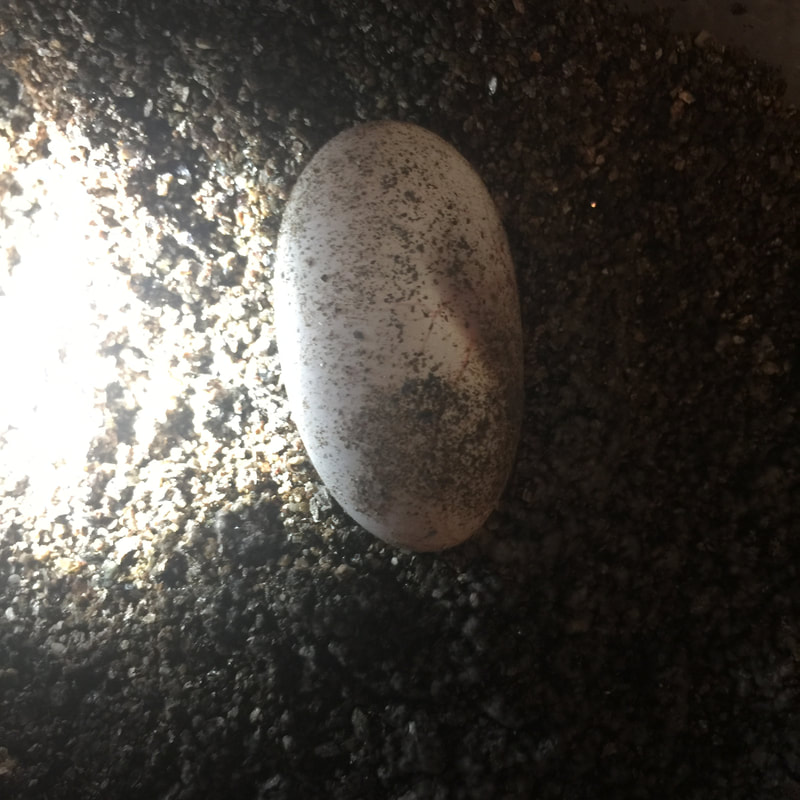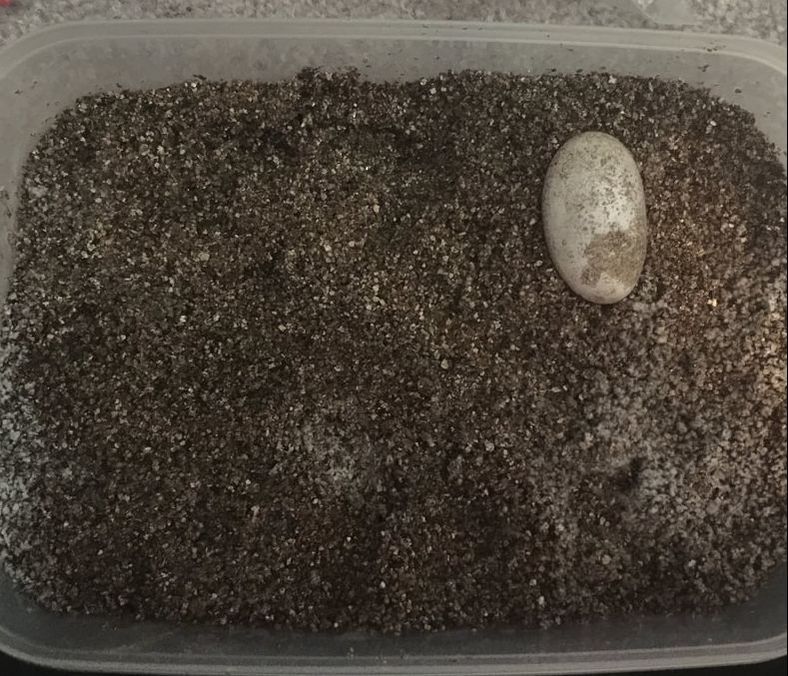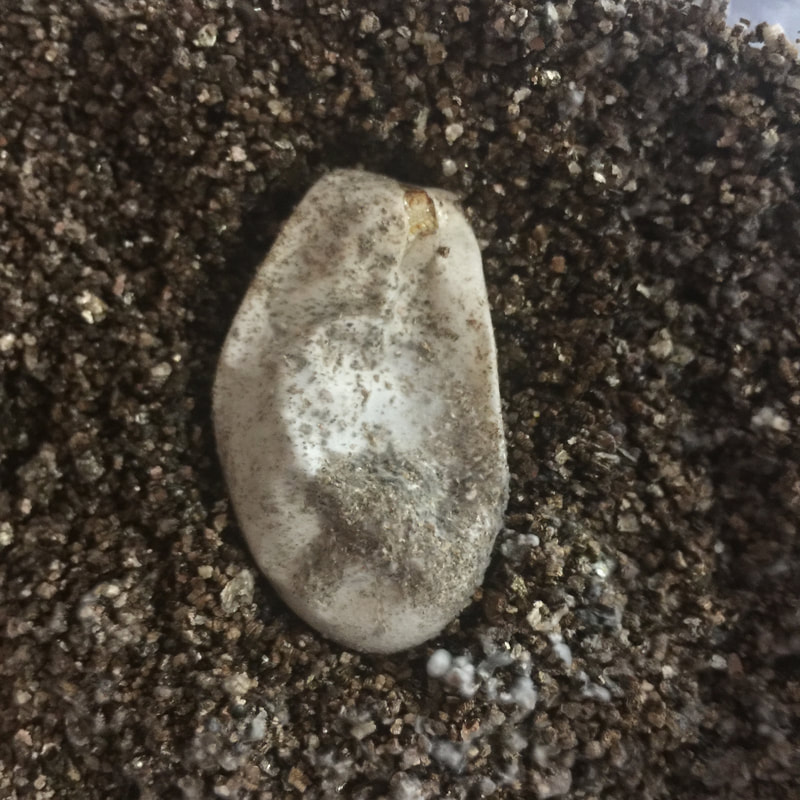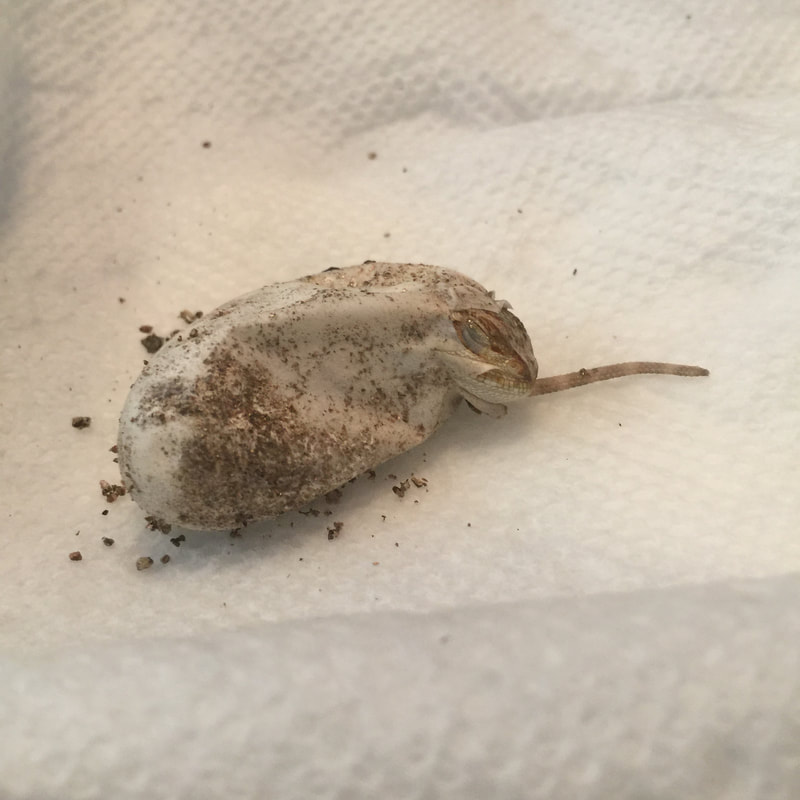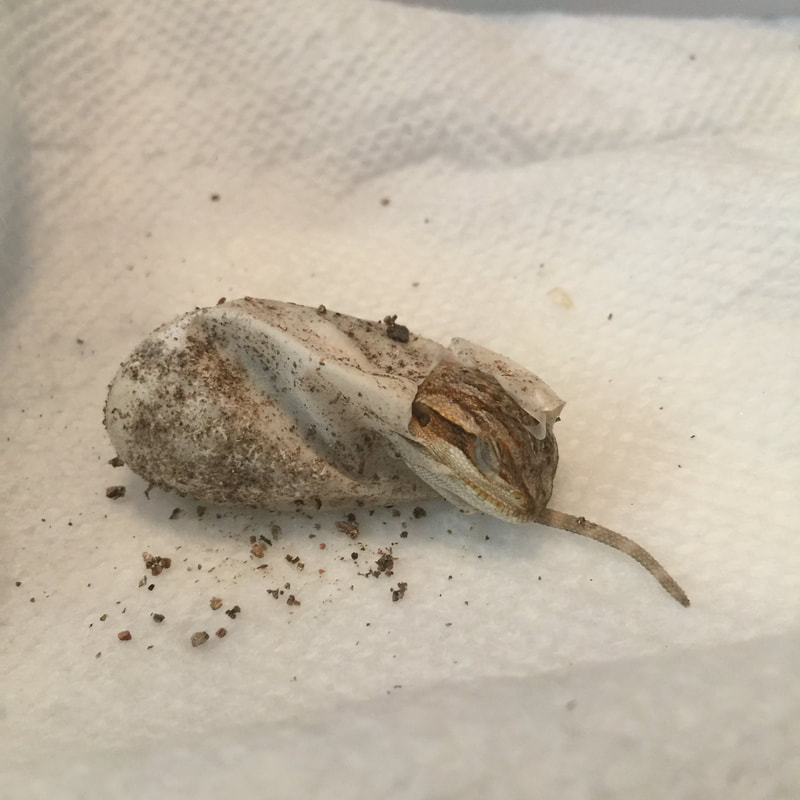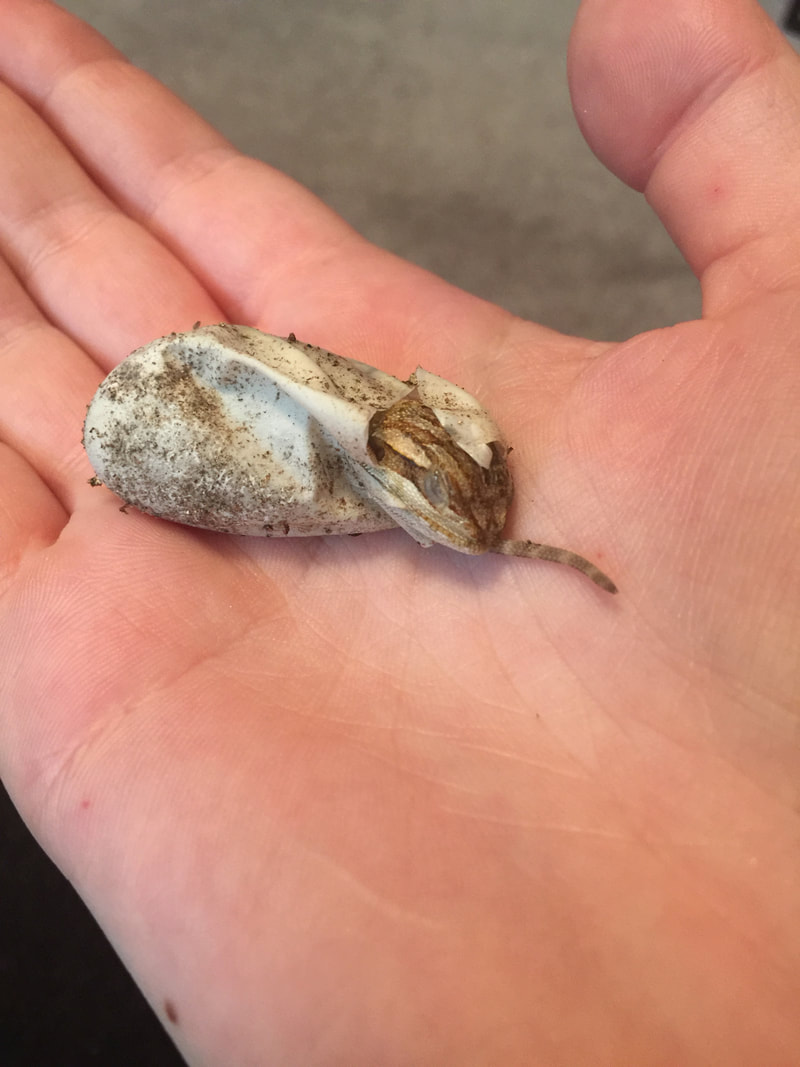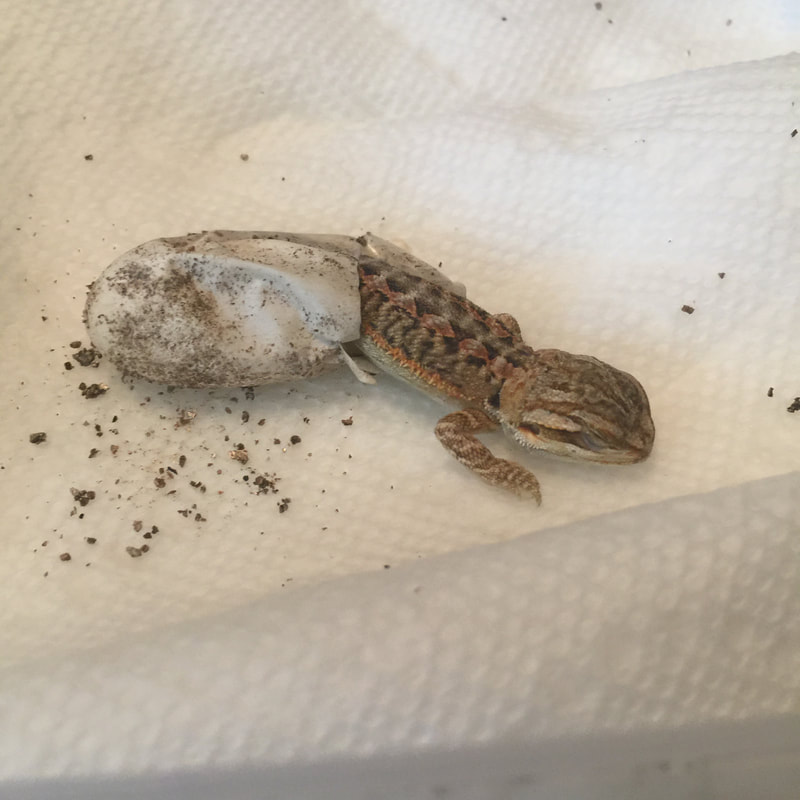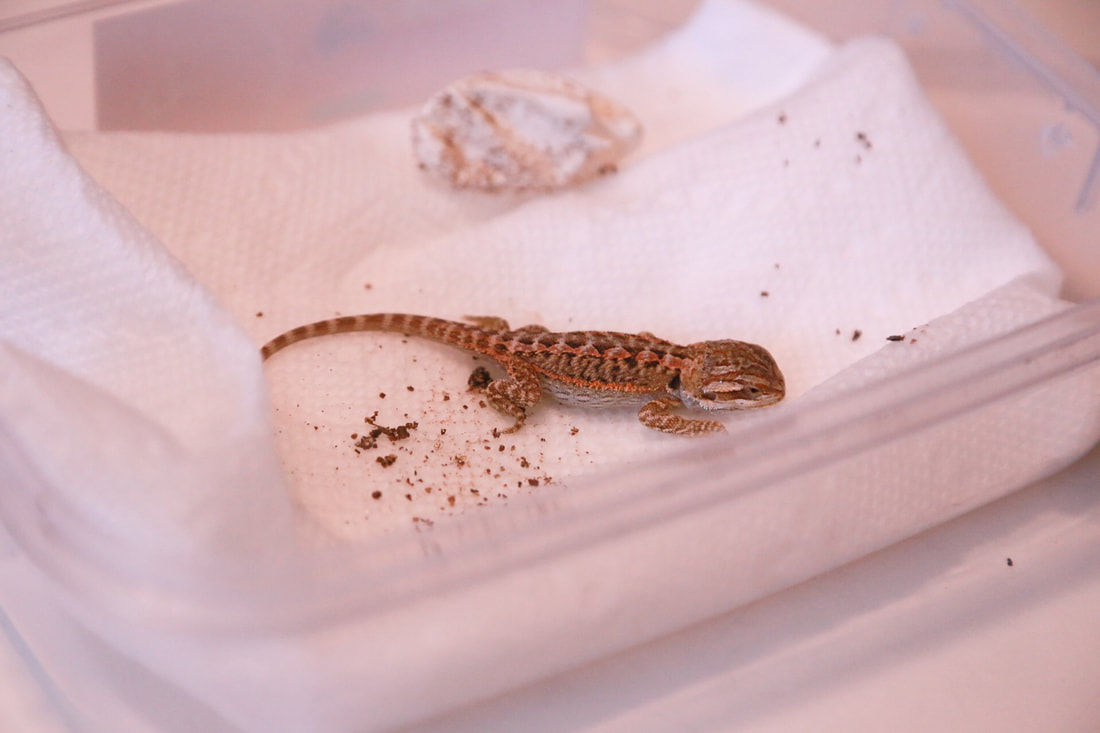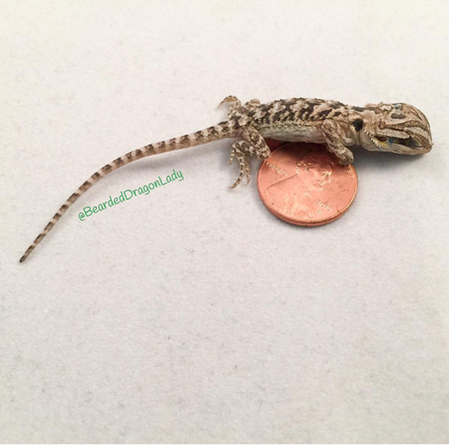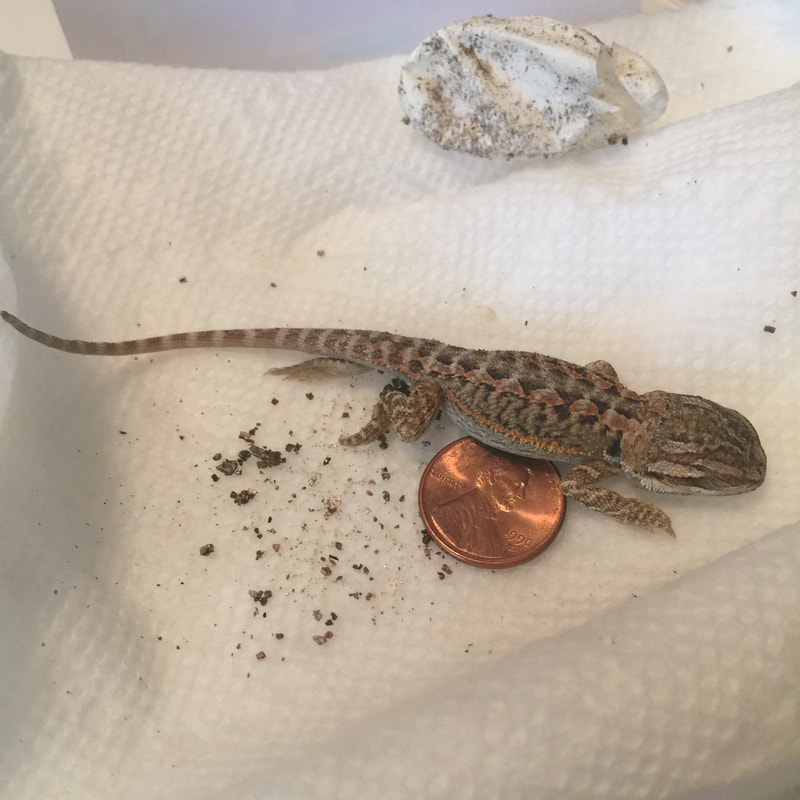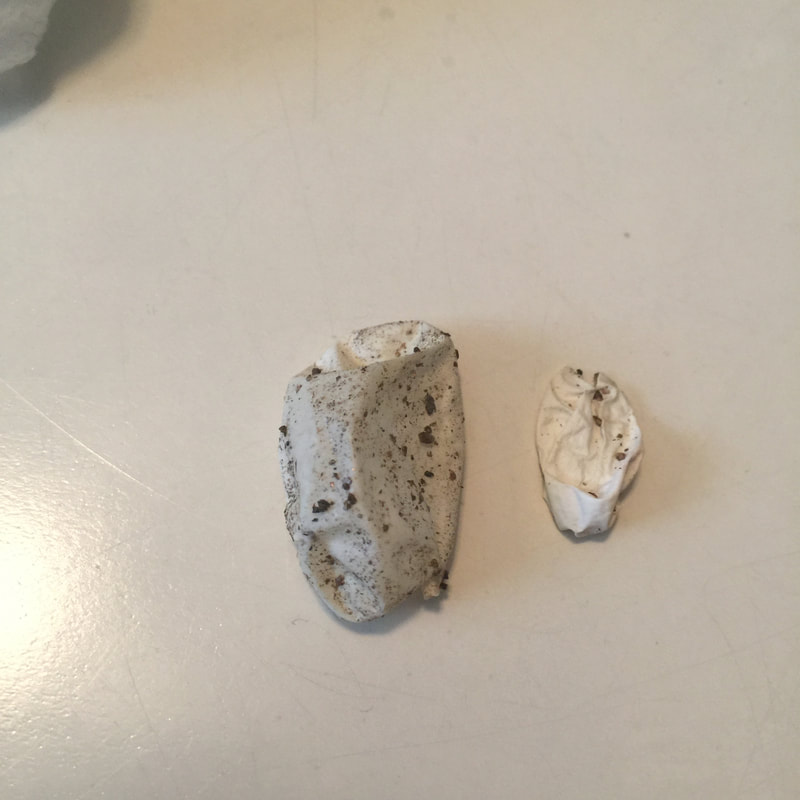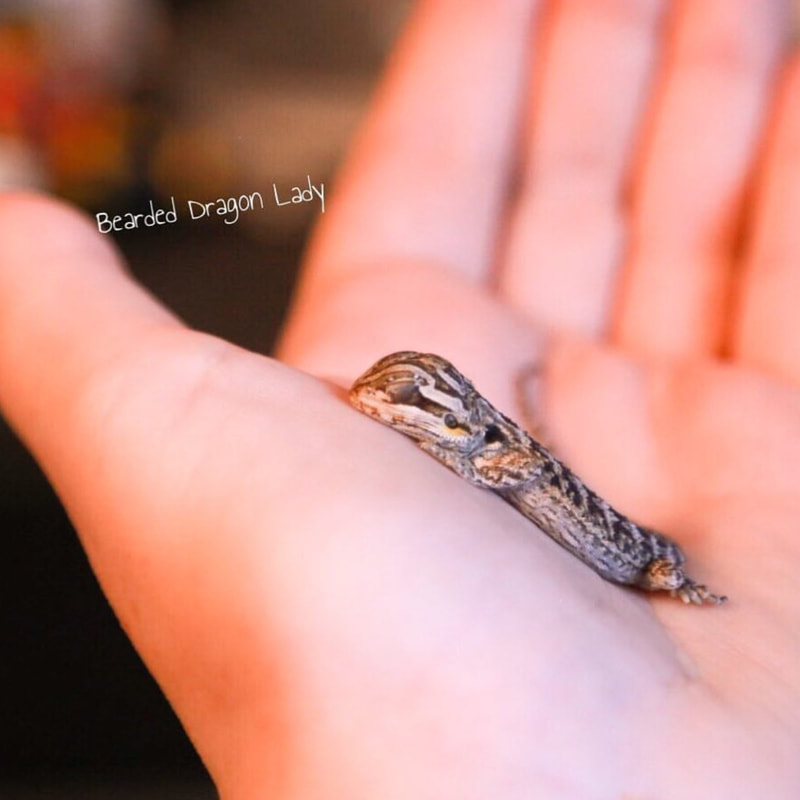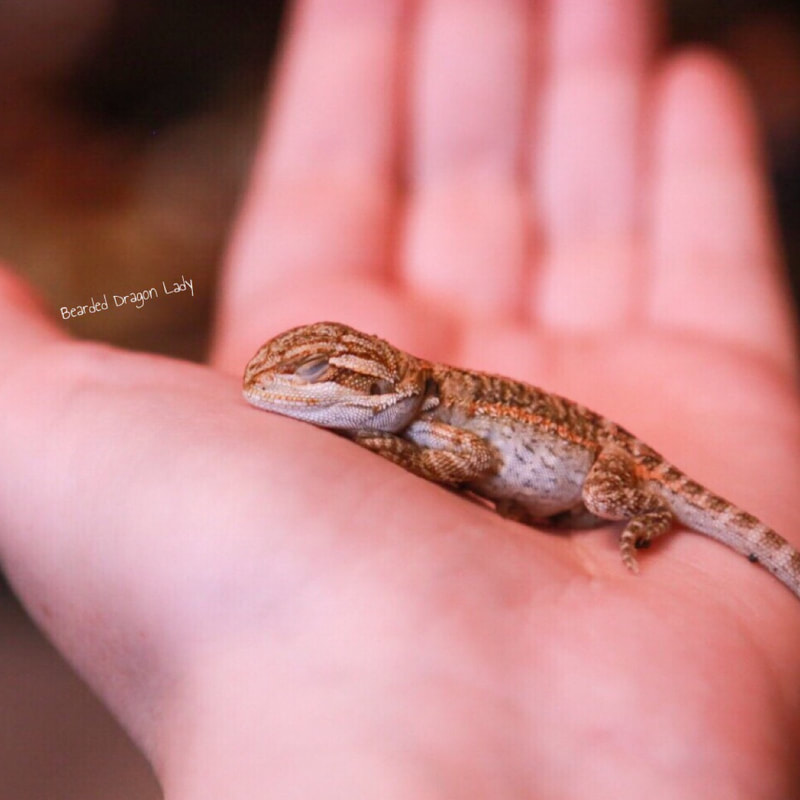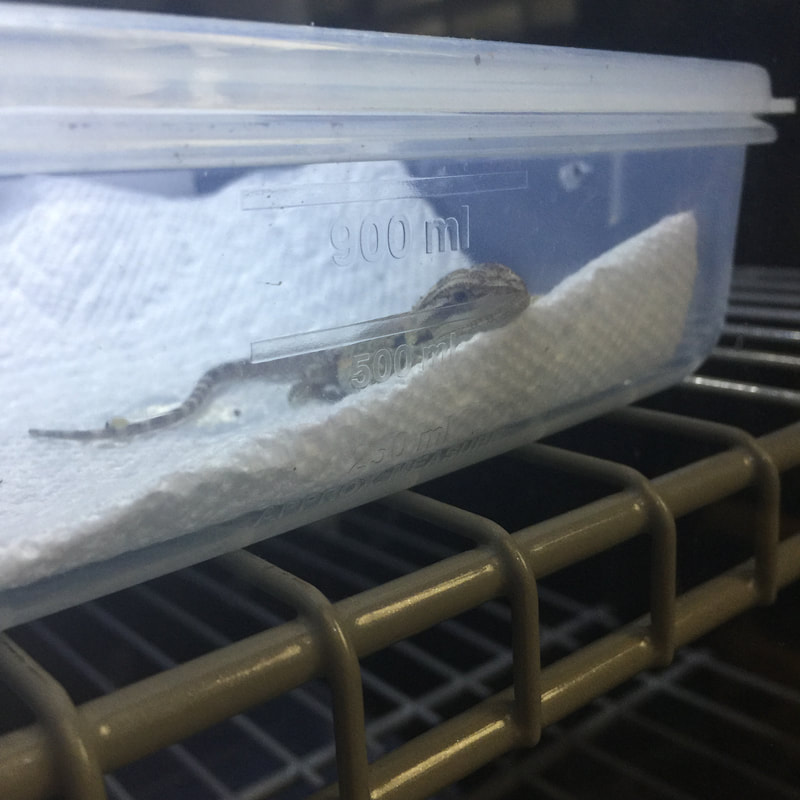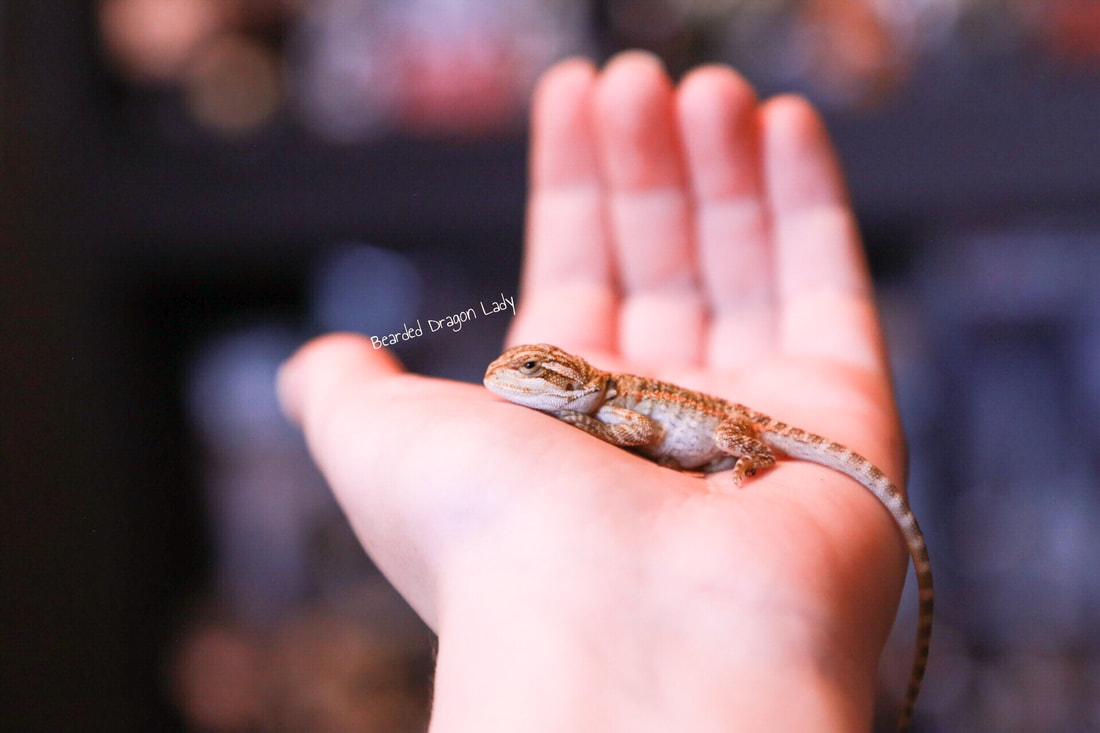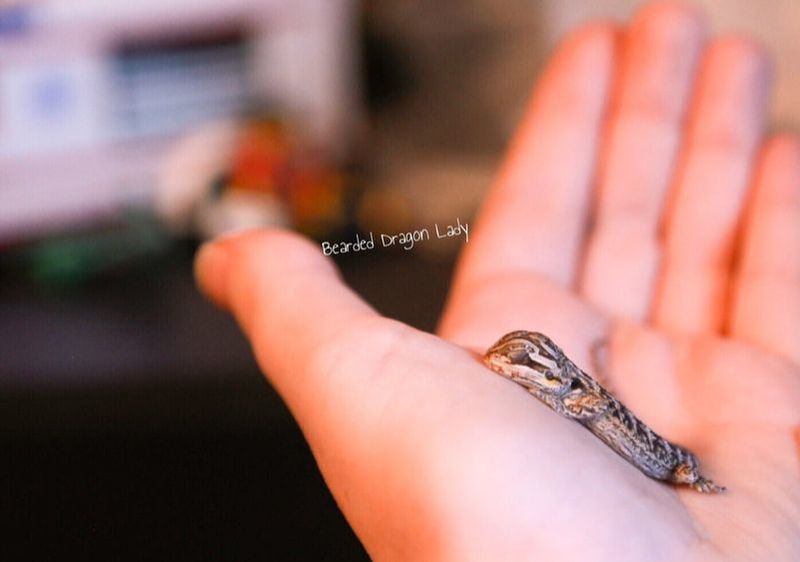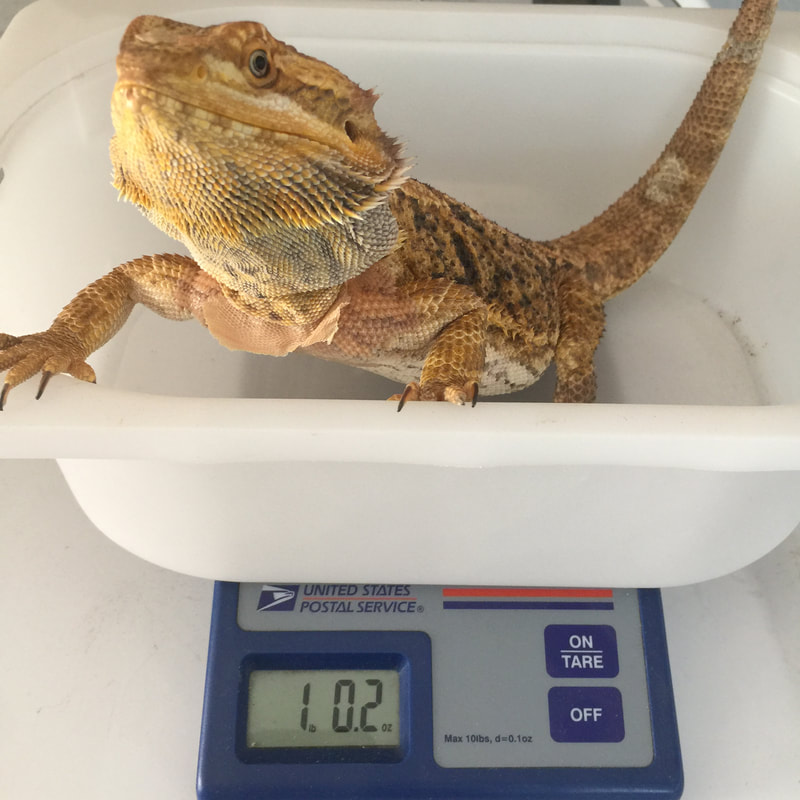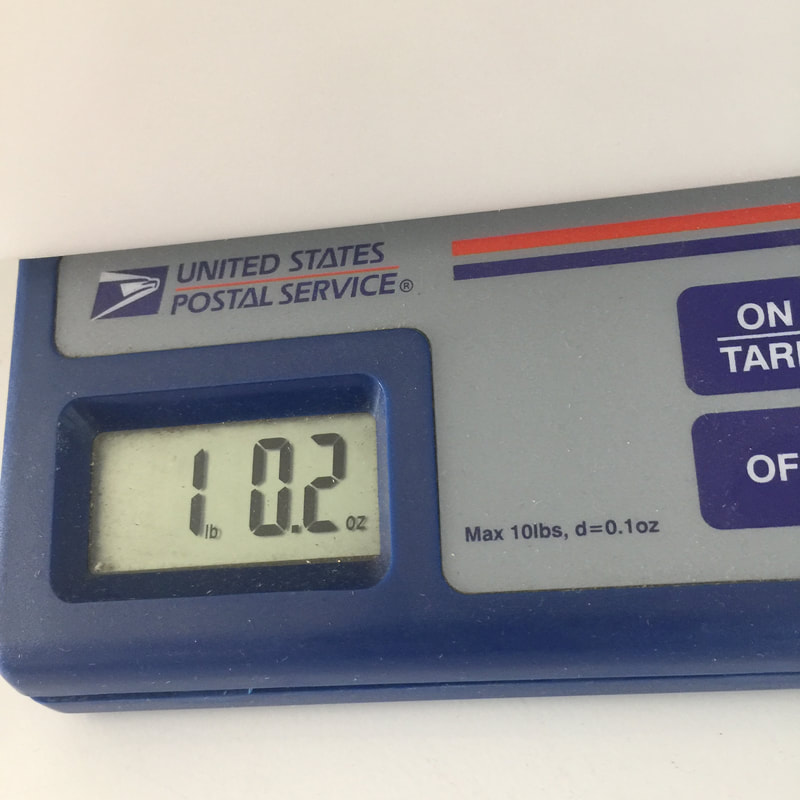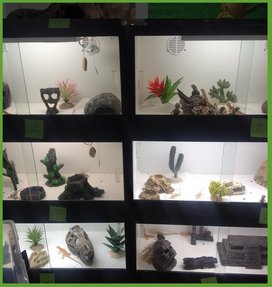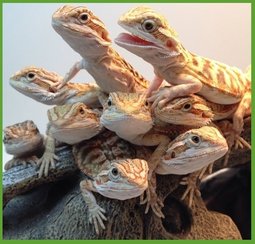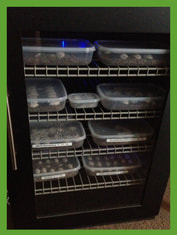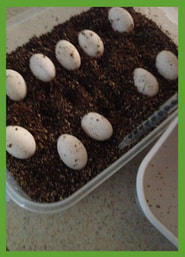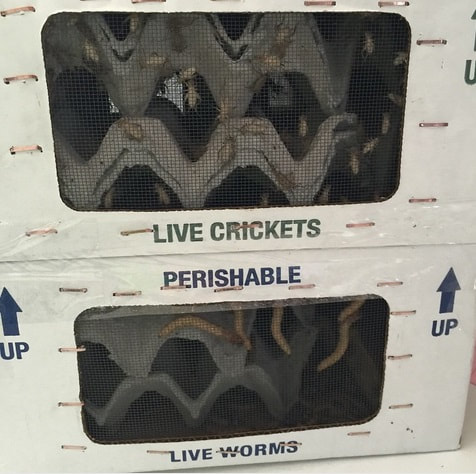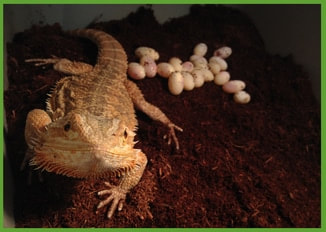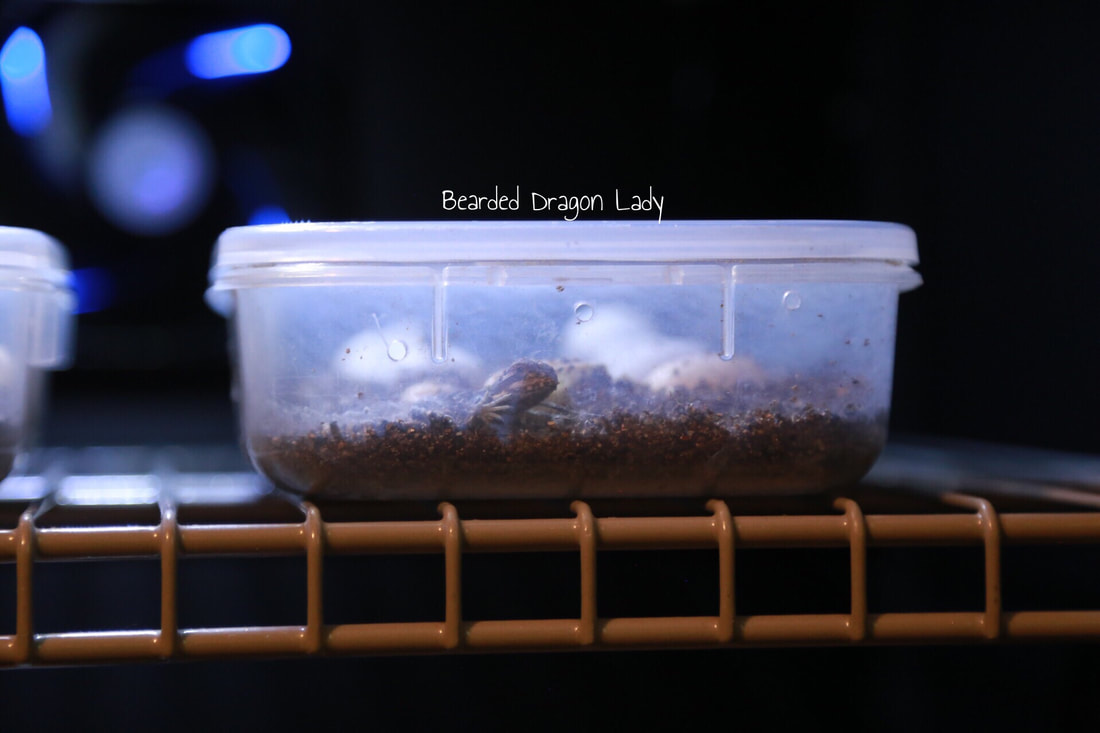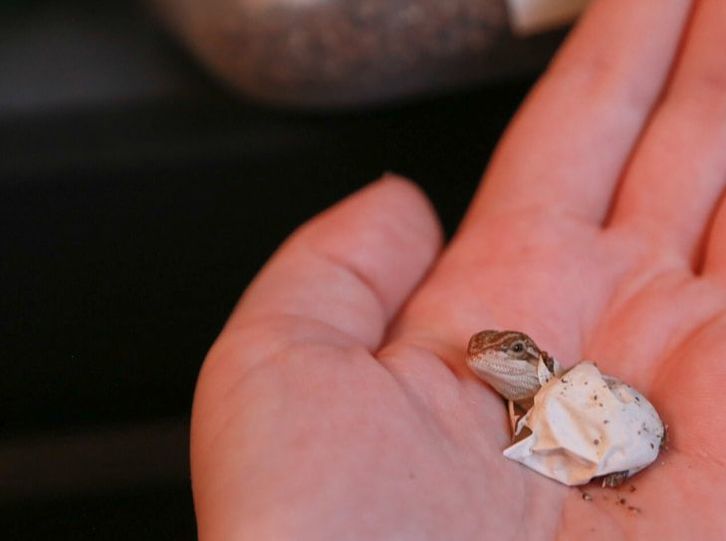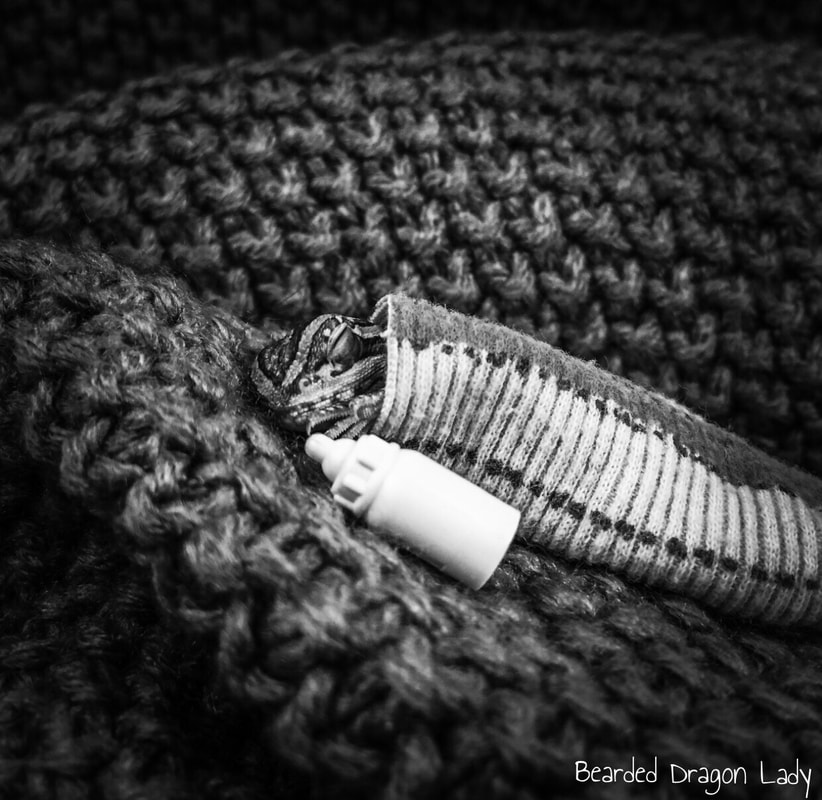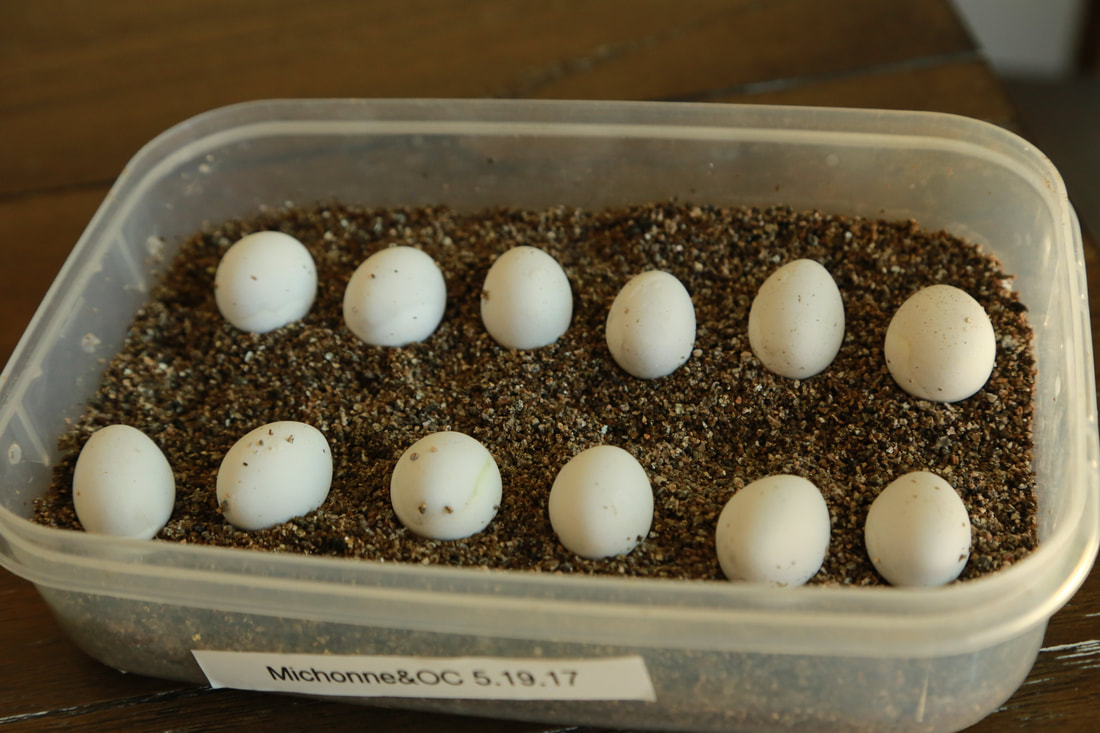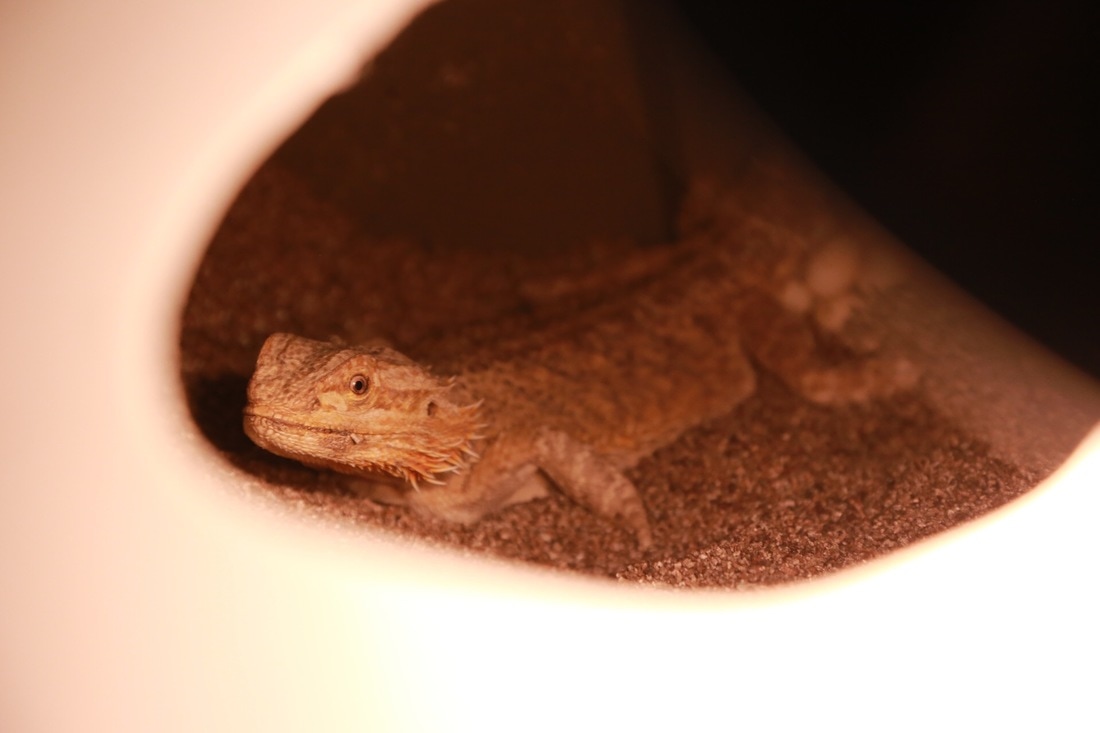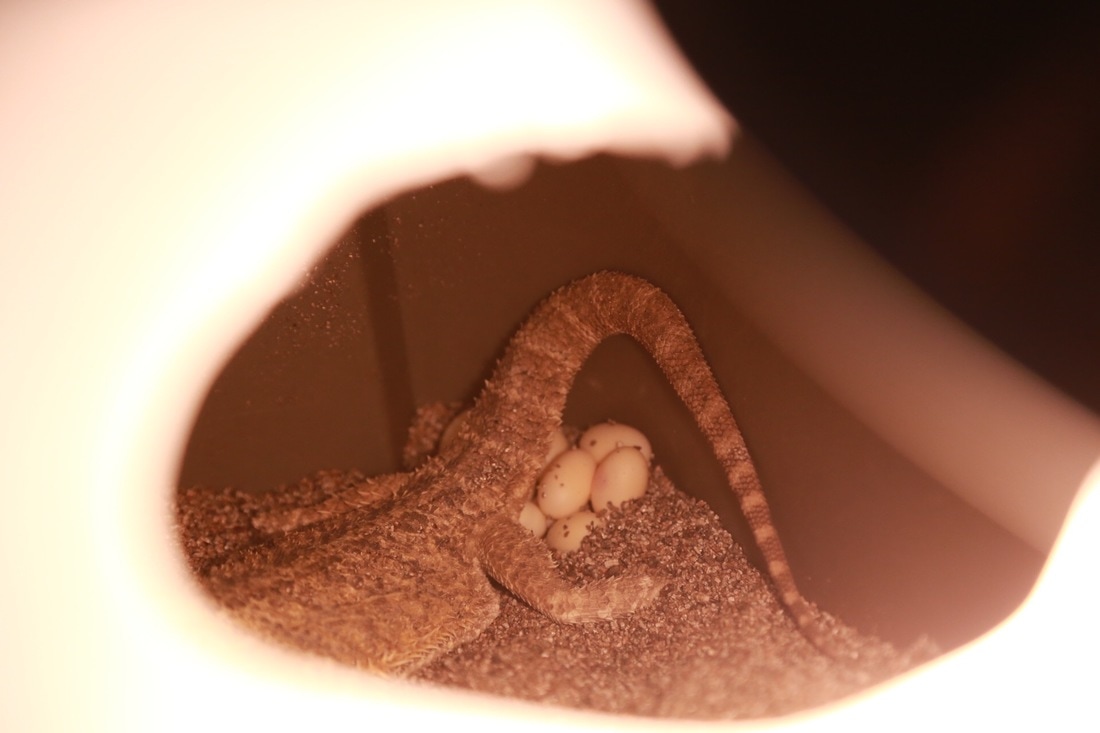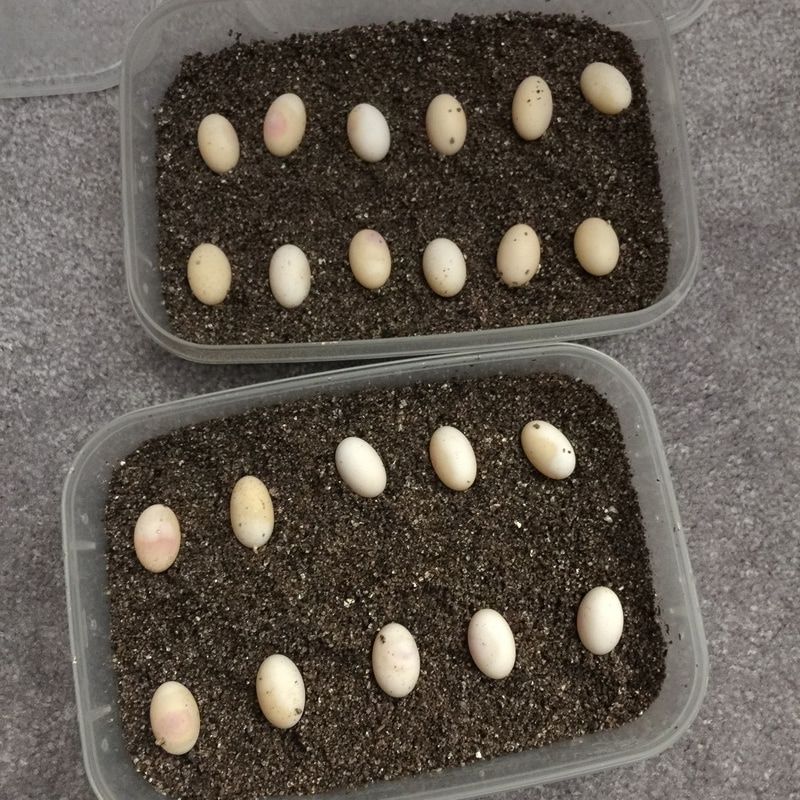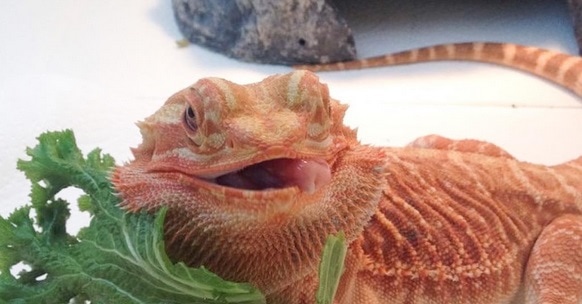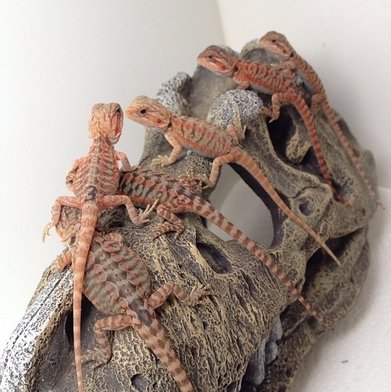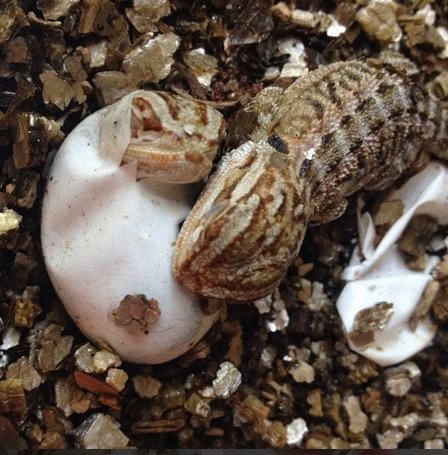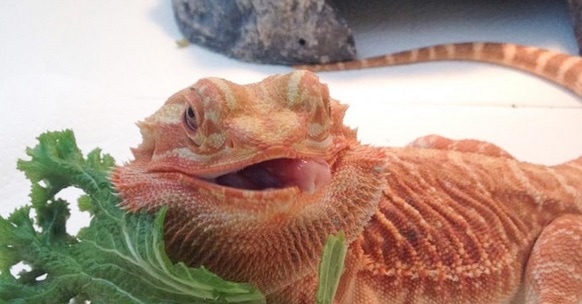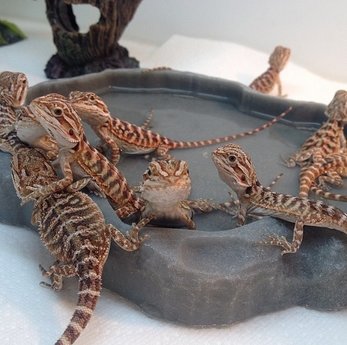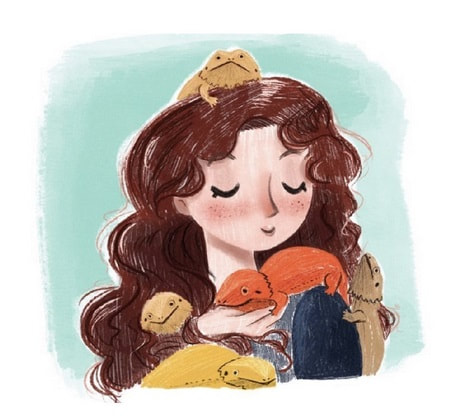|
About 2 months ago Biscuit was 30 days gravid. She dug for over a week but would not lay her eggs. We were going to take her to the vet for emergency removal of the eggs when she FINALLY laid them. Sadly most were yellow and dead right away, the rest started oozing and caving in despite having blood vessels and signs of life and eventually they died. All of them but one. This little guy or girl was a fighter and showed strong signs of life. The weirdest part of this sole survivor was as time went buy the egg grew HUGE. It is the largest dragon egg we have ever had. Over 2 months of incubation finally today 8.29.17 it hatched. With a nose and tail out I breathed a sigh of relief knowing at least one of these guys made it. I could already tell just by seeing the head this was definitely a larger than normal baby bearded dragon. Just take a look at the size difference by a penny between a baby that hatched in July and this new big baby. And look at the difference in eggs sizes. And check out the comparison to this other hatchling born in July, both of them only hours old. There is no doubt in my mind that this little guy/gal is very special. I will keep you guys posted on her/his progress on my Instagram.
0 Comments
Breeding Bearded Dragons looks like a lot of fun. Clutches of babies are absolutely adorable and offer hours of entertainment, but they are a really big responsibility. I wanted to share the things I learned over the years in an effort to help future possible breeders be more prepared and avoid colossal and possible life threatening mistakes. Mating Health Before you even consider putting a male and female together to mate you must ensure they are the right age and weight. Dragons should be over 1 year old due to the fact that breeding stress can kill a dragon of any age but there is more of a chance in younger dragons. Parasite check ups are important to make sure nothing is passed on the babies before breeding and you need to make sure your breeders are not related to avoid serious birth defects. (Though parasites can get to a dragon easily and even from the food they eat so it can still happen) Proper weight is also important for living through the very stressful and exhausting mating experience. Male dragons need to be a MINIMUM of 300 grams to breed, and females 350 grams. For an example one of our females Biscuit is 1 pound 0.2 ounces which equals a total of 462.66 grams and she is 3 years old so she is more than able to breed. Housing This is something new breeders always forget about, having enough housing for their baby dragons. Did you know that a female bearded dragon can lay anywhere from 15-35 eggs in a single clutch? They also can lay 1 clutch a month for 6 months, because they can store a male's sperm. So this means you could have up to 210 babies on your hands in a 6 month period. So you might be thinking that is not a big deal you just need 6 cages, but you actually need 2-3 cages per clutch. The reason being that baby dragons grow and fight. They fight for basking space, food and little males start to get territorial once they are a month or so old. It is unavoidable. Also the bigger and more dominant babies grow faster because they steal more food, these bigger ones have to be separated as well because they will bite the tails and toes of smaller dragons. And don't forget you need a heat light and a UVB light for each cage and the light fixtures for those too. Also cage decorations to break up the area are necessary to help prevent fights. This adds up fast, but you are not done spending money yet. (And please remember to NEVER put baby dragons in the cage with their parents, because they will EAT THEM.) Incubation Before you even put your dragons together to mate you should already have an incubator in your home. You need to be ready for your dragon to start laying at anytime after mating, thought usually it takes about a month to lay, you still want to be ready before hand. The last thing you want is to have an incubator on order, lost in the mail or not be able to find one and wind up driving around trying to locate one once the eggs are laid. You have a very short window of getting them to proper temperature before they die. Digital incubators work best because they can be automated and set to a temperature and kept there which is crucial. A good incubator will set you back $100 or more easily. You also need to egg tubs with air holes on hand. And either Vermiculite or Perlite for bedding to hold in moisture. Keep a syringe near by for adding water to the soil, as it dries out occasionally, and you want to be able to add water without getting the eggs wet, this can cause mold and kill an egg. Electricity & Feeder Bugs Costs that new breeders also tend to not think about are those for the daily care of lots of baby dragons. Your electric bill is going to increase a good amount with all of those cages. With 2 lights each, and if you don't have something like solar on your home, it is going to hit your wallet hard. Also we have to talk about food. Your adult dragons eat lots of feeder bugs and greens daily, and so will your babies. Each baby needs a MINIMUM of 5-10 feeders per day (varies on the size/type of the bugs). So if you were lucky enough to get 210 total babies, feeding them an average at 5 feeders per dragon per day totals an amount of 1,050 bugs per day you need to have on hand. That's over 7,000 per week, not to mention finely chopped fresh veggies/fruits they need daily for a balanced diet. The Mating Dance Keep in mind there can be breeding complications for your dragons that DEMAND veterinary help which will be an added expense. Females can be injured during mating as over zealous males may bite areas other than their neck causing bleeding and possible infection. Males can die from breeding stress after mating and they can also die from losing the ability to retract their penis after mating causing a deadly infection. Females can also die from the stress but they have it tougher than the males when it comes to possible bad outcomes from breeding. Females can become egg bound, which means they can't or won't lay their eggs. These eggs will continue to grow inside of them and eventually kill them unless removed by surgery. Another bad outcome is when a female will not stop laying eggs. After mating a female's body can be confused and think there is always stored sperm inside causing them to excessively lay eggs every single month for the rest of their lives. This can have deadly results as egg laying takes a toll on a dragon's health. Females have to be fed more vitamins and more food when gravid (pregnant) to not only ensure healthy eggs but to keep herself healthy from the exhausting process of creating and laying them. Females can literally lay themselves to death if their bodies do not stop making eggs. Sadly there is no cure for this and 'fixing' them is not a guarantee they will make it. If they don't stop they will die eventually as their little bodies can't keep up with this taxing experience. Some dragons lay infertile eggs every once and a while and this is normal but if they do it often and start to lose weight visibly, please go see a vet asap. The Leftovers Another thing to think of is what are you going to do with your babies long term. Are you going to sell them? Are you going to keep them? If you keep them each male needs their own cage once they reach 6 months provided they are not picking fights sooner. And for females you may be able to keep 2-4 females that have been raised together and are the same size in the same (large) enclosure but they can still fight. If you are going to sell your dragons, unless you breed hundreds of stunning colors and morphs, it will not make up for the difference in cost, most dragon owners hardly break even. So how are you going to sell them, online, whole sale, and to whom? You should already have a plan before breeding on what you are going to do with your dragons once they are big enough to leave home. And a plan for what are you going to do with the ones that don't sell, or get a tail or toe nip, or end up with special needs. I can tell you from years of personal experience it is hard letting babies go. You put months into caring for them as eggs and babies. It is scary to think they may go to a home that will not listen to your advice and you might get an e-mail from a customer saying the dragon is dead for reasons that they could have avoided if they had just listened. It's also frustrating to haggle on the cost of a dragon. There is a rough standard for certain morphs and colors for pricing but you also have to consider the amount of money you spent on food, electricity and your time. And then there is the roughly $50 it costs to overnight ship, which customers often get upset over. But for the breeder it is impossible to be responsible for this cost or they would go broke. Just Because You Can Breed Doesn't Mean You Should I know the photos and videos of baby dragons are very popular on social media, leading lots of new owners to breed before they should. I hope this blog post helps you make an informed decision on your choice to breed, and if you need more help check out my other pages below: Egg Care Mating Life Cycle So I cleaned up my You Tube account and will be making more posts with my HD camera. I just made a post candling some eggs due this month, go check it out and subscribe!
Michonne laid eggs finally, after what felt like forever. She laid on 5.19.17 a total of 23 eggs, though 1 appears infertile.
It took her about an hour to get them all out. They are already white and getting more solid by the day. Dragon Eggs take 60-90 days to hatch, lets hope for 60ish.
This clutch also belongs to Orange Crush, so we are hoping for some gorgeous orange babies. To learn more on Bearded Dragon Eggs Click Here.
And follow me on Instagram for hatching updates!
Honestly the hardest part about breeding is selling. Well aside from the cleaning, the feeding, watching for fighting, bathing, more feeding...but you get my point. Baby dragons are the cutest. Their curious eyes and tiny bodies make everyone gush. Now imagine having a group of adorable babies from the day they are laid snugly in their eggs, until they hatch and see the world for the first time, raise them, hold them, then send them away. It is so hard because you grow to love them all, but at the same time if you kept them all you would go bankrupt from the food and electric bills! In most cases we never hear from the new owners again because that's just life. I often think of past babies and hope they are out their basking away all hugely fat and happy. And for those customers that do send us updates as they grow, we love you. We haven't had new babies for a while due to me having some personal health issues a while back. But happily we are back breeding Bearded Dragons again and we should have babies late summer/early fall, including some from OC. I will keep you all updated! |
Bearded
|

